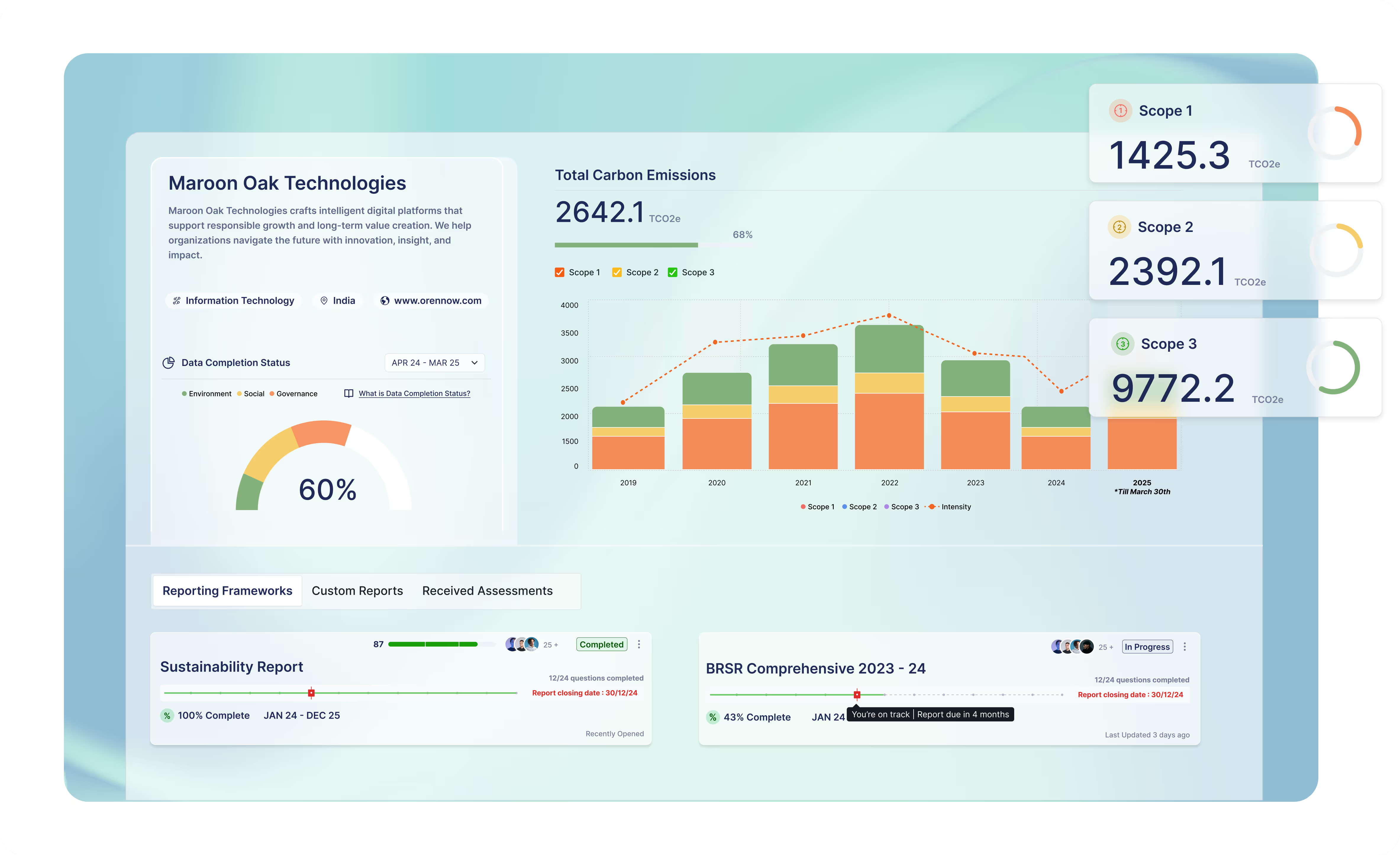Emerging ESG Trends in India: Navigating Sustainability Reporting and Compliance

The landscape of Environmental, Social, and Governance (ESG) is evolving rapidly across the globe, and India is no exception. As businesses in India increasingly embrace sustainability, several key trends are shaping how companies manage and report their ESG performance. This article explores the latest ESG trends in India, emphasising the growing importance of sustainability reporting, the impact on various sectors, and the future outlook for ESG practices.
The Evolving ESG Reporting Landscape
1. Challenges and Advances in ESG Data Management
One of the foremost challenges companies in India face is managing and integrating ESG data effectively. After an initial period of struggle with data management, companies are anticipated to upgrade their enterprise applications to better capture ESG-relevant data. This shift is crucial for accurate sustainability reporting in India and aligns with global reporting standards such as the Global Reporting Initiative (GRI) and the Sustainability Accounting Standards Board (SASB) framework.
2. Banks and Financial Institutions Embracing ESG Criteria
Financial institutions, including banks, are placing greater emphasis on ESG factors when making financing or lending decisions. This trend is leading to the development of internal frameworks for green bonds and other sustainable financial instruments. Consequently, ESG rating agencies like MSCI and DJSI are gaining prominence as more companies seek these ratings to enhance their credibility and attract investment.
3. Broadening ESG Reporting Beyond SEBI Mandates
While the Securities and Exchange Board of India (SEBI) mandates ESG reporting for the top 1000 listed companies, the trend is extending beyond this group. Public companies outside the top 1000, along with numerous private entities, are increasingly adopting sustainability reporting practices. Companies are exploring various reporting formats, including BRSR (Business Responsibility and Sustainability Report) and global standards like GRI.
4. Enhancing Diversity and Inclusion in Leadership
In line with ESG goals, companies are focusing on enhancing diversity within their leadership teams. This trend includes better management of diversity talent pipelines for boards and top management positions. Organisations are aligning appointments with their diversity objectives, reflecting a broader commitment to social sustainability.
5. Adopting Global and National ESG Ratings
As companies become more adept at collecting and reporting ESG data, there is a notable increase in applications for ESG ratings from global and national agencies. The quest for high ESG scores drives companies to seek assessments from agencies like Ecovadis, which offer insights into their sustainability performance and practices.

Sector-Specific ESG Trends
1. Services Sector: Leveraging ESG for Competitive Advantage
In the services sector, including IT, consulting, and BFSI (Banking, Financial Services, and Insurance), companies are using their superior ESG performance to differentiate themselves in the global market. They are also investing in extensive ESG training programs for employees to align them with sustainability goals and initiatives. Commercial real estate players face pressure from tenants to provide ESG data and demonstrate energy efficiency, reflecting the growing importance of environmental and sustainability considerations.
2. Manufacturing Sector: Integrating Sustainability into Operations
The manufacturing sector is undergoing a significant transformation as companies rethink their products and processes to incorporate sustainability. Innovations in this sector are driven by the need to manage Scope 1 and Scope 2 emissions and address the challenge of Scope 3 emissions, which remain less understood due to limited visibility into supply chain emissions. Many manufacturers are transitioning from coal to renewable energy sources to reduce emissions and cost. Export-oriented businesses face increasing pressure from global customers to meet ESG standards and certifications.
Future Outlook - Government Initiatives and Data Availability
A significant hurdle for businesses is the lack of India-specific data on climate risks, which hampers efforts to achieve net-zero targets. To address this, government entities like the Ministry of Environment, Forest, and Climate Change (MoEFCC) are working to provide more accurate national data on energy and climate-related risks. This initiative will enhance the ability of companies to make informed decisions and set realistic sustainability goals.
Conclusion: The Growing Importance of ESG
In conclusion, ESG is becoming increasingly integral to business strategy across various sectors in India. Companies are recognizing the value of integrating sustainability practices into their operations and reporting on their ESG performance. As the trend extends beyond the top 1000 listed companies, the adoption of global and national ESG ratings is expected to rise. By prioritising sustainability, businesses stand to benefit by attracting customers, investors, and talent, ultimately contributing to a more sustainable future.
Latest Blog Posts
Dive into our blog for insights on making your organization more sustainable.
Sustainability Simplified
Wherever you are in your sustainability journey, we help you advance with confidence.
Schedule a Call



.avif)

